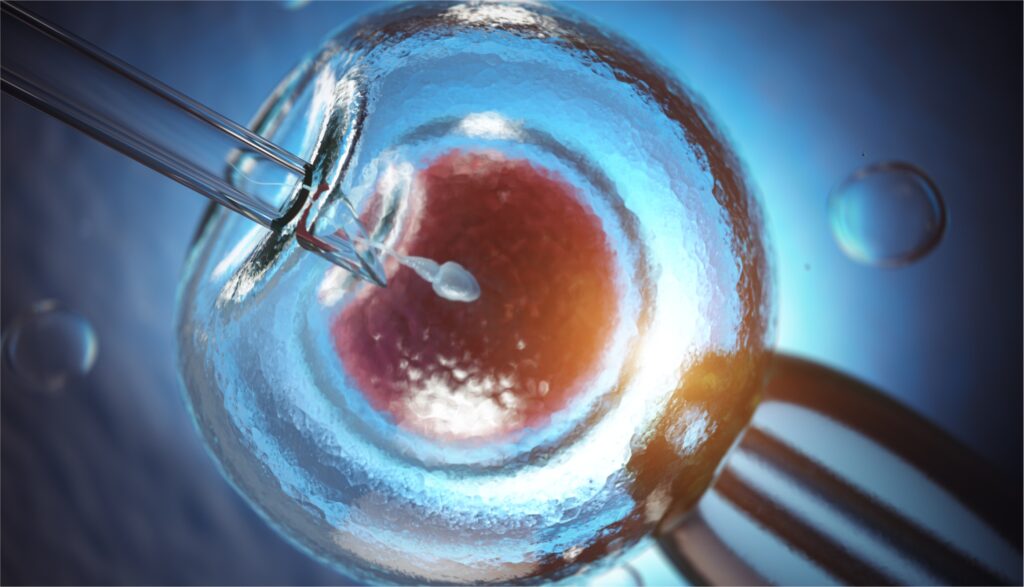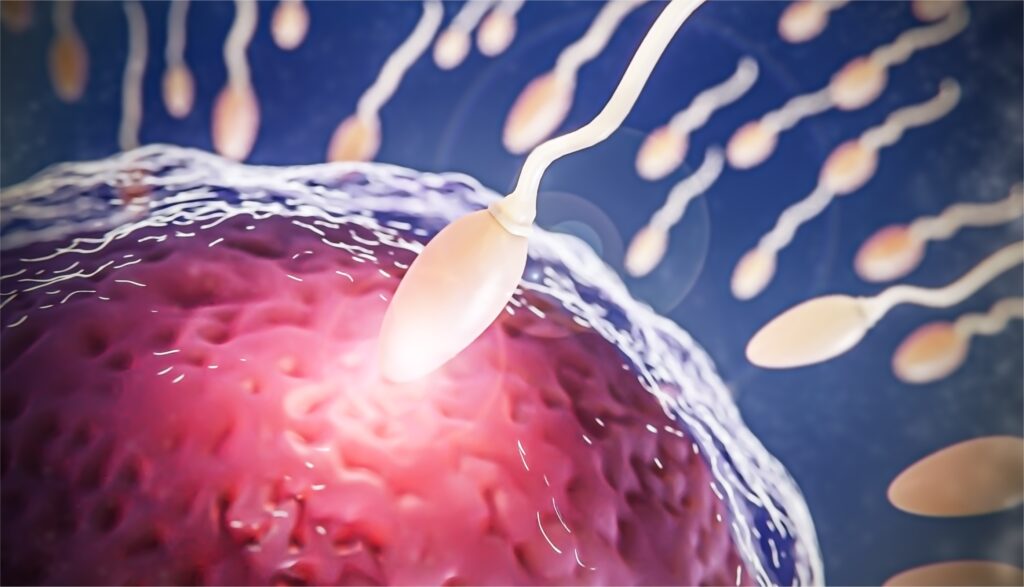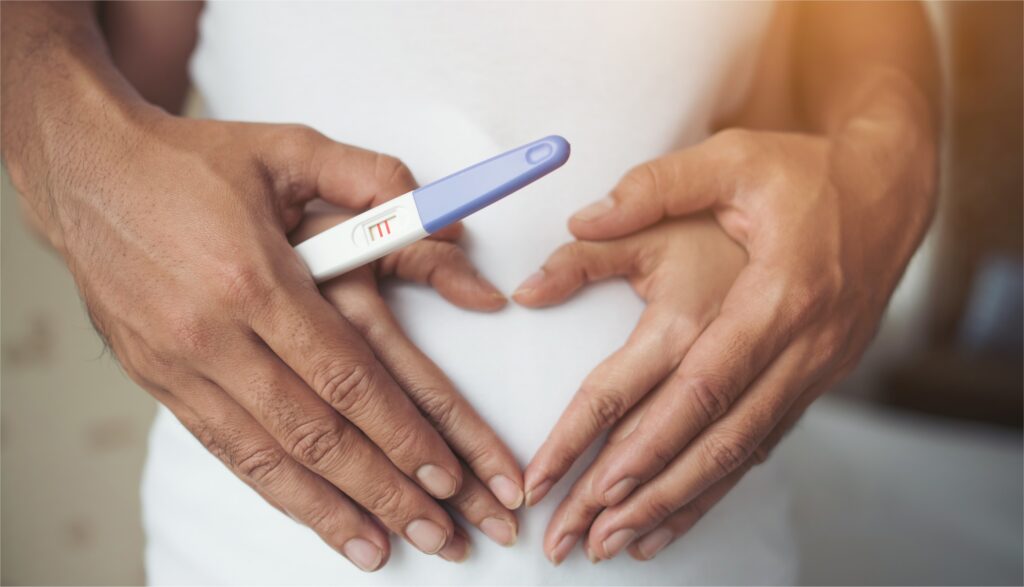What is IVF?
In Vitro Fertilization (IVF) is an assisted reproductive technology where eggs and sperm are combined outside the body to create embryos. These embryos are then implanted in the uterus, offering hope to couples facing infertility challenges. In vitro fertilization, also called IVF, is a complex series of procedures that can lead to a pregnancy.
It’s a treatment for infertility, a condition in which you can’t get pregnant after at least a year of trying for most couples and for couples where the female partner is above 36years, 6 months of trying is appropriate. IVF also can be used to prevent passing on genetic problems to a child where there is a known of foreseeable risk, it can also be used for family balancing in parts of the world where it is allowed.
During in vitro fertilization, mature eggs are collected from ovaries and fertilized by sperm in a lab. Then a procedure is done to place one or more of the fertilized eggs, called embryos, in a uterus, which is where babies develop. One full cycle of IVF takes about 2 to 3 weeks. Sometimes these steps are split into different parts and the process can take longer.
It is important to note that to start the process of IVF the couple must be carefully examined, this is to ensure that first they are in good health and the child coming into the family will not inherit any preventable illness.
The examination also include test to ensure that the woman has what it takes to support the pregnancy, that is the eggs are adequate and good enough, her hormones are in the right amount needed to support pregnancy, also her womb is receptive to the incoming baby. For the male partner his semen will be analyzed to be sure it is adequate for the process of IVF. If there is any challenge in the above, it will first be sorted before the IVF journey starts.
In vitro fertilization is therefore most effective type of fertility treatment that involves the handling of eggs or embryos and sperm. Together, this group of treatments is called assisted reproductive technology.
IVF can however be done using a couple’s own eggs and sperm. Or it may involve eggs, sperm, or embryos from a known or unknown donor. In some cases, a gestational carrier — someone who has an embryo implanted in the uterus — might be used.
Your chances of having a healthy baby using IVF depend on many factors, such as your age and the cause of infertility. What’s more, IVF involves getting procedures that can be time-consuming, relatively expensive, and invasive. If more than one embryo is placed in the uterus, it can result in a pregnancy with more than one baby. This is called a multiple pregnancy.

Understanding the IVF Process
It is very important to understand the IVF process before you undergo it, its critical to the success of the process. IVF involves a series of carefully coordinated steps, combining medical expertise, laboratory techniques, and personalized care to optimize the chances of a successful pregnancy.
Please note that you will be duly counselled before every procedure during your IVF journey so that you are signing an informed consent. Witnessing is a key process in ART, before any procedure is carried out an assistant with the fertility specialist must confirm the identity of the patient on the couch before this procedure begins, this is to ensure that the right procedure is being done to the right patient.
Enquiry
It is very important to book an appointment for first visit or Initial consultation following an enquiry. This consultation might also be virtual in some cases. The IVF expert will answer questions and explain the process of IVF in the Clinic in details. Then another appointment might be booked to beginning the process.
Initial Consultation
Scheduling an Appointment
Contact our clinic to schedule an initial consultation. Our friendly staff will guide you through the process and provide you with the necessary information. A reminder might be sent before the appointment time. Please note that all IVF appointments are scheduled, and timing is very important, endeavor to get the clinic 30 minutes before your appointment time.
It is important to state here that this appointment is a paid appointment, you should prepare to pay a token for the appointment.
Preparing for the Consultation
Compile any relevant medical records, including previous fertility treatments. Prepare a list of questions to discuss with our fertility specialist. It is important to check your note with your partner to ensure no critical information is left out.
Meeting with Our Fertility Specialist
During the consultation, you’ll discuss your medical history, undergo initial fertility assessments, and receive an overview of potential treatment options.
Diagnostic Tests
Female Diagnostic Tests
A series of tests, including blood work, ultrasounds, and hormonal evaluations, will be conducted to assess ovarian function, egg quality, and overall reproductive health.
Please prepare for a trans-virginal scan and a little needle prick.
Male Diagnostic Tests Semen analysis and other tests will be performed to evaluate sperm count, motility, and morphology.
Please Note SFA result is best optimized after 2-3days of abstinence, the sample should be produced via masturbation (if masturbation will be a challenge please let your fertility expert know he will advise accordingly)
Reviewing Test Results
Our fertility specialist will review the diagnostic test results with you, explaining any findings and recommending a tailored treatment plan. We adopt a personalized care system. It imperative that your medications are tailored to your specific needs. This in turn can affect the cost of your treatment.
Customized Treatment Plan
Developing a Personalized Treatment Plan
Based on the diagnostic results, a customized treatment plan will be created, outlining the specific procedures, medications, and timelines.
Understanding the Timeline
Gain insight into the expected duration of each phase of treatment, from ovarian stimulation to embryo transfer.
Financial Consultation
Our financial counselor will discuss the cost of treatment, insurance coverage, and available financing options.
Ovarian Stimulation
Medication Protocol
Detailed information on the medications prescribed to stimulate the ovaries for optimal egg production. The aim is to recruit a good number of follicles and retrieve matured eggs for fertilization.
Kindly follow the given instructions strictly, pls call your assigned nurse if you have any question or concerns.
Monitoring and Adjustments
Regular monitoring through ultrasounds and blood tests to track the progress of ovarian stimulation, with adjustments made as needed.
Preparing for Egg Retrieval
Guidance on lifestyle considerations and what to expect leading up to the egg retrieval procedure.Please note that you are not allowed to eat before the procedure, your last meal should be 6 hours before the procedure. You should not wear perfume or your strong-smelling deodorant on your days of procedure.

Egg Retrieval
Procedure Overview
A step-by-step explanation of the egg retrieval process, including anesthesia, egg extraction, and recovery will be done by the Fertility specialist.
Recovery Guidelines
Post-retrieval care instructions, including recommended rest, medications, and any potential side effects.
The number of eggs collected, and the oocyte recovery report will be discussed with the couple by the fertility Nurse.
The fertility nurse will discharge the patient with the luteal phase support drugs as the case maybe, the day of embryo transfer will also be communicated.
Fertilization and Culturing
Sperm Collection
Details on the collection of sperm will be provided before egg collection day, Clients have the option of producing from home if they can get to the clinic between an hour of production. Where sample cannot be produced through natural means a surgical procedure can be used to retrieve sperm cells from the testis, this is done in extreme cases of erectile dysfunction or obstructive azoospermia.
Fertilization Process
Insight into the fertilization techniques employed in the laboratory, such as conventional insemination or intracytoplasmic sperm injection (ICSI) and Intracytoplasmic Morphologically Selected Sperm Injection (IMSI).
An embryologist from the IVF laboratory will call the couple the day after the oocyte pickup and fertilization to give fertilization check report and advice on the time of Embryo transfer.
Embryo Culturing
Information on how embryos are cultured and monitored in the laboratory before transfer. A day 3 embryo check report can be given to couple this also serves as a reminder call for embryo transfer. Client with excess embryos is also informed to prepare for cryopreservation of their spare embryos as cryopreservation fees is paid before embryo Transfer.
Embryo Transfer
Selecting the best Embryos is done by the Senior Embryologist and a report of the culture is given to the fertility doctor. The fertility doctor will have a brief consultation with the couple before transfer explaining what has transpired so far. The number of embryos for transfer is decided by the couple guided by the Fertility expert. You should not wear perfume or strong-smelling deodorant on your days of procedure.
Transfer Procedure
The fertility nurse advice the woman to take water so that her bladder is full, this helps the fertility doctor to see her womb clearly during ultra-sounded guided embryo transfer.
As soon as she is feeling pressed the nurse ushers her into the theatre for Embryo transfer.
The embryologist shows the couple their embryos on a screen after confirming their identity. The fertility doctor then prepares the woman for the embryo transfer process. The embryos are then carefully placed into the client’s womb, and we all hope they implant.
Post-Transfer Care
Guidelines for the post-transfer period, including activity restrictions and medications.
The client is made to lay down for about 15 minutes after embryo transfer.
The Fertility nurse then takes her into a recovery room where her luteal phase drugs are explained to her meticulously. Other post transfer instructions would be explained. She will also be taught how to do a pregnancy test at home two weeks post embryo transfer.
A treatment summary document is given to the client, this document will contain a summary of the treatment cycle, from down regulation to embryo transfer.
Waiting Period
The Two-Weeks Wait
The two weeks post Embryo transfer is usually the longest for any trying couple, it is usually characterized with anxiety and tension. The couple will duly be counselled on how to cope with the pressure and how to positively approach it so that it does not affect the outcome of the IVF process.
Coping Strategies
Tips for managing stress, anxiety, and uncertainty during this challenging period is available for download on our website.

Pregnancy Test
When and How to Take the Test
Pregnancy test is done two weeks after Embryo Transfer. This can be done at the clinic or by the couple in their home.
Instructions on when and how to perform the pregnancy test, ensuring accurate Information on interpreting test results and understanding potential outcomes results would have been explained to the couple by the fertility Nurse.
Next Steps Based on Results
Guidance on the next steps, whether positive or negative, and scheduling a follow-up consultation.
Success and Next Steps
Confirming Pregnancy
Information on confirming a positive pregnancy test and scheduling early pregnancy monitoring.
Early Pregnancy Monitoring
Details on the initial stages of pregnancy monitoring and ongoing support will be communicated by the Fertility Doctor.
Negative Pregnancy Outcome
For a negative pregnancy, the patient is usually required to stop all medications and book a failed cycle discussion appointment.
Planning for the Future:
Discussion on family planning, additional treatments, or other considerations based on individual circumstances.

